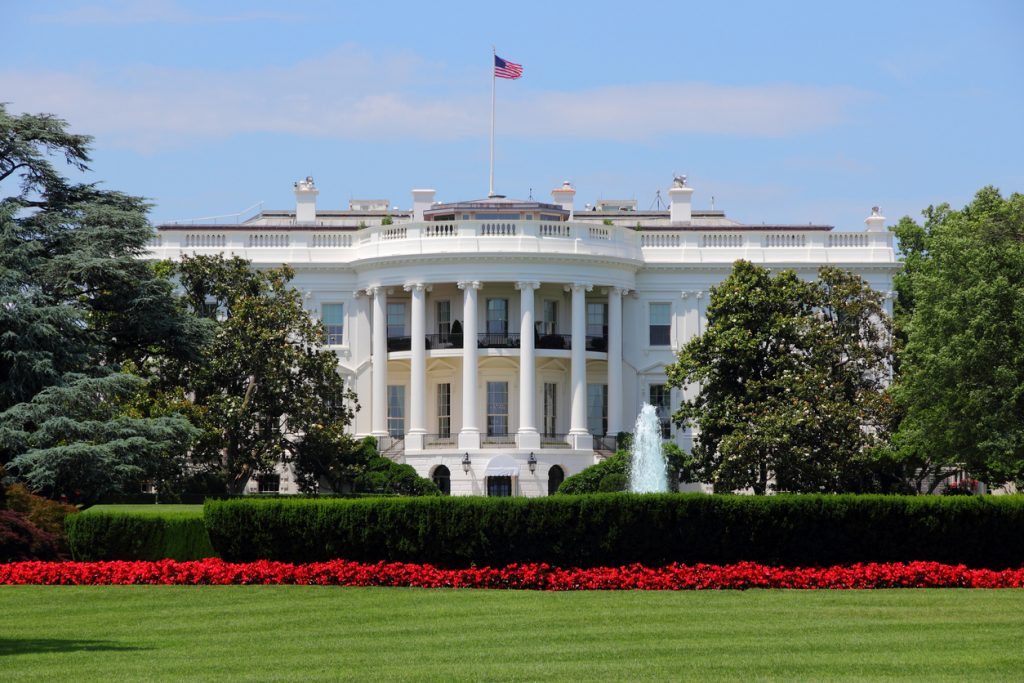Daniel Fleming, Jeff Li, Kat McKay and Brittany Parisi, with assistance from paralegal Sabrina Piotrowski, offer Lawyer Monthly an analysis of the ongoing litigation surrounding the results of the US election.
President Trump continues to tilt at windmills and lob Hail Mary passes to stay in the White House. Here is a survey of election litigation, which is highly unlikely to change the result that Biden won.
LAWSUITS THAT HAVE LITTLE CHANCE (Georgia, Michigan, Pennsylvania):
Georgia
What is the lawsuit about?
In Wood v. Raffensperger, the plaintiff alleged that the presidential election in Georgia was defective based on Georgia Secretary of State Brad Raffensperger’s unauthorised oversight of the balloting process and sought a court injunction against certification of the results.
How was the lawsuit decided?
On 20 November, 2020, the court denied the relief sought by Plaintiff. The court ruled that Plaintiff had no standing as a private citizen to overturn millions of votes. As the court noted, “Just because the right to vote is fundamental does not mean that individual voters have the right to direct the manner in which votes will be cast, accepted or rejected.”
What’s the likelihood the Supreme Court will hear the case?
None. This lawsuit was for an injunction stopping certification. An audit was already completed on November 19, 2020, which did not change the winner, and the Secretary of State and Governor certified the results on November 20, 2020.
Can the lawsuit delay the election results?
Not this lawsuit. The Secretary of State has already certified the results, showing former Vice President Biden won by more than 12,000 votes.
Michigan
What is the lawsuit about?
In Constantino v. City of Detroit, the plaintiffs sought, based on allegations of fraud, an injunction to stop the certification of the votes in Detroit’s home county, and for the court appointment of an election results audit to delay certification of the vote in Michigan.
Is the lawsuit credible?
No. Wayne County Chief Judge Timothy Kenny found that the plaintiffs’ supporting affidavits of fraud were replete with “generalised statements” of “speculation” and unfounded “sinister motive” but nothing more. He ruled that granting the requested relief would be “an unprecedented exercise of judicial activism for this Court to stop the certification process” and “could disenfranchise Michigan voters from having their state electors participate in the Electoral College vote.”
This is just the latest of six lawsuits in Michigan, including a federal lawsuit, all of which failed.
What’s the likelihood the US Supreme Court will hear the case?
Nil. Plaintiffs’ state court appeals have all been denied.
Can the lawsuit delay the election results?
This case, like the others, is dead on arrival. Now that Wayne County has certified its votes, all that’s left is for the State of Michigan to certify all votes on 23 November, 2020 (as it now has). Recount votes must be filed with the Secretary of State within 48 hours after the State has certified all votes. Trump faces an uphill battle on any recount since he must first prove he has a reasonable chance to win to be entitled to a recount. That’s a tall order, given that he lost in Michigan by more than 157,000 votes.
Pennsylvania
What is the lawsuit about?
In Donald J. Trump for President v. Boockvar, plaintiffs seek an emergency order prohibiting the Commonwealth of Pennsylvania from certifying the results of the Presidential General Election. On 18 November, 2020, plaintiffs filed a Second Amended Complaint alleging there are 682,807 ballots that should be invalidated because the Trump campaign had not been allowed to watch the counting process as closely as they wanted to. Defendants filed a motion to dismiss.
Is the lawsuit credible?
No. Trump’s re-election campaign admitted in court that plaintiffs are not alleging voter fraud or impropriety and agreed to sign a stipulation to memorialise same at the 17 November, 2020 court appearance.
This is just one of several election lawsuits filed by the Trump Campaign in Pennsylvania, many of which have been unsuccessful.
What’s the likelihood the US Supreme Court will hear the case?
Slim. The evidentiary hearing originally scheduled for 19 November, 2020 was cancelled. Defendants filed a motion to dismiss which the Honorable Matthew Brann granted on 21 November, 2020. Plaintiffs will have a difficult time obtaining certiorari from the United States Supreme Court seeing that the Pennsylvania Supreme Court rule that an election observer in Philadelphia was not entitled to stand within a particular distance from employees who were processing mail-in ballots, overturning a lower court’s ruling on the matter.
Can the lawsuit delay the election results?
Unlikely. In the unlikely event the Trump campaign can whittle away Biden’s advantage to 0.5%, Pennsylvania law would trigger an automatic recount. However, even if Pennsylvania’s vote did go to a recount, and even if that recount resulted in President Trump winning Pennsylvania, this alone would not change the outcome of the Presidential General Election because all of the other states have been called and President-Elect Biden has collected at least 290 electoral votes. Therefore, overturning Pennsylvania’s result, alone, would not pave the way for a second Trump term.
[ymal]
LAWSUITS THAT HAVE NO CHANCE (Arizona, Wisconsin):
Arizona
There are no pending lawsuits in Arizona because they have all been dismissed. The last lawsuit involved only two ballots, which the court dismissed. All other lawsuits were dismissed voluntarily, including one challenging the right of election officials to use sharpie marker pens. None of the lawsuits had any merit, none will reach the Supreme Court, and none will delay the presidential election.
Wisconsin
What is the lawsuit about?
In Langenhorst, LeMay and Fifrick v. Pecore, plaintiffs sought an injunction to stop Wisconsin’s certification of the votes for Joe Biden because they alleged that election officials included illegal ballots in Democratic-leaning counties, thereby diluting proper ballots.
Is the lawsuit credible?
No. Plaintiffs made no specific allegations of wrongdoing.
What’s the likelihood the US Supreme Court will hear the case?
Impossible. Plaintiffs have already voluntarily dismissed their lawsuit.
Can the lawsuit delay the election results?
No, but at Trump’s request, there will be a partial recount in the Democratic-leaning counties of Milwaukee and Dane. Trump has paid $2,809,682.12 for this recount.




















